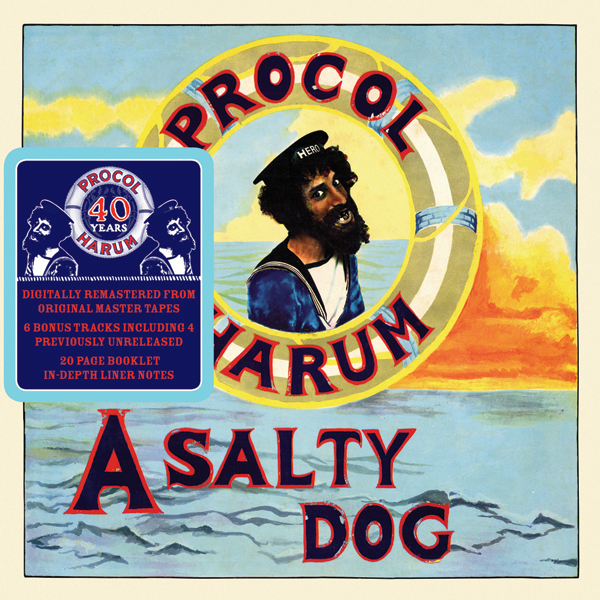
Procol Harum
Beyond |
|
|
|
|
Order from Amazon UK here or immediately from The BtP Store where there are lots of other Procol goodies as well

The water's tested, the solid ground found, the band come ashore and go asunder.
The third album's always a challenge: while the second record can be shaped up after a début, the next one must have a different formula in its core. Which, in Procol Harum's case, seemed a difficult task with what was perceived as their trademark sound and the songwriting team behind the band's very existence. Still, the ensemble welcomed ideas from everyone, and a riot was out of question in the collective built as a vehicle for Gary Brooker and Keith Reid to realise their creative vision. Yet here, once others' sights became clearer, erstwhile grandiosity appears confined to two bookending epic songs that don't take on really epic scale in terms of length but are fathomless with orchestra sweeping the opener, A Salty Dog, and orchestral feel wrapping the finale, Pilgrim's Progress. Both depict a journey of different kind – but while the former sails, echo-clad, on the Brooker gloomy piano and the familiar 'seasick' thread, the latter, sung and mostly played by its author, Matthew Fisher, brings hope to the mix.
The ensemble found a great solution to all the contradictions by harnessing two traditions: the rootsy one, in the Chicago-styled Robin Trower-incited Apocalypse of guitar and harmonica of Juicy John Pink that Muddy Waters wouldn't have been ashamed of (there's also a live version alongside an incendiary bonus of the Howlin' Wolf staple Goin' Down Slow) and their own, in All This and More. It sounds as if it was recorded for the previous LP but reads as a sharp comment on the situation in the ranks where too many forces emerged to keep it all together. The real maturity of the playing and the material's strength comes forth on the Dylan-esque rhythm-and-blues of the Long Gone Geek single and The Milk of Human Kindness which combines the vaudeville easiness with the heaviness of blues and puts forward BJ Wilson's ever-shifting drumming. A contrast to this is the marimba-spiced delicate Boredom and a gentle ballad Too Much Between Us resting on the acoustic guitar strum and the organ ripples. Elsewhere, another Fisher's creation, the panoramic Wreck of the Hesperus, though perfectly scored, underscores the album's prevailing mood of aloofness that the Trower-delivered Crucifiction Lane only adds to, even in the concert take. And that feels good – there's a sense of adventure, a sense only a few could challenge Procol Harum for.
|
|
|
|